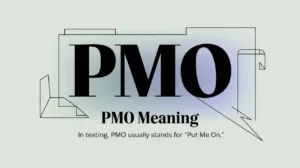The English language is constantly evolving, and with 2025 ushering in newer forms of expression influenced by technology, culture, and global communication, understanding nuanced vocabulary is more essential than ever. One such word that continues to carry weight and purpose in professional, academic, and even casual settings is “endeavor.”
In this article, we will delve deeply into the meaning of endeavor, its contextual implications, its place in modern language, and most importantly, provide polite, professional, and casual alternatives to enrich your vocabulary. The goal is not just to understand what “endeavor” means—but how and when to use it effectively depending on your tone, audience, and objective.
What Does “Endeavor” Mean in 2025?

At its core, “endeavor” is a formal and elevated term that refers to a serious or determined attempt to accomplish something meaningful. It’s often used in contexts that imply effort, intention, and persistence.
In 2025, with AI-driven communication and global collaboration at an all-time high, the word “endeavor” has remained relevant for:
- Business and academic writing
- Diplomatic or strategic documents
- Inspirational speech and writing
- Polite forms of encouragement or support
Oxford 2025 Updated Definition: “An earnest, sustained attempt to achieve a goal, often involving perseverance and purposeful action.”
Example: “Her endeavor to integrate sustainable methods into urban planning reshaped city policy in 2025.”
Key Features of the Word “Endeavor”
- Tone: Formal, respectful, inspiring
- Common Contexts: Academic, business, nonprofit, international relations
- Verb Form: To endeavor (“They endeavor to create change.”)
- Noun Form: An endeavor (“This is a bold endeavor.”)
Stand For and Meaning in Text

The phrase “stand for” is often confused or used interchangeably with other verbs like “represent,” “signify,” or “support.” In text, “stand for” means:
- To symbolize or represent something“UNESCO stands for United Nations Educational, Scientific and Cultural Organization.”
- To advocate or support a principle“In 2025, the company proudly stands for environmental responsibility.”
- To tolerate or allow (used negatively)”She won’t stand for laziness in her team.”
Each use of “stand for” depends heavily on context and syntax.
In formal and digital text in 2025, people now tend to clarify abbreviations early and avoid ambiguity by offering descriptive context rather than relying on overly formal or outdated shorthand.
Why Replacing “Endeavor” Matters in 2025
Sometimes, using a formal word like “endeavor” may feel too stiff or unnatural in everyday conversation or digital interactions. As digital communication continues to favor clarity, simplicity, and tone-appropriateness, understanding alternatives to “endeavor” is vital.
Below are ten expertly curated alternatives to “endeavor” with their meanings, usage examples, tone insights, and best contexts for use.
10 Alternatives to “Endeavor” (with Examples & Context)

1. Attempt
Meaning: A try or effort to achieve something.
Tone: Neutral; direct
Example: “Despite several attempts, the system failed to launch.”
Use: Suitable for informal and formal texts; concise.
2. Pursuit
Meaning: The act of striving toward a goal, often long-term.
Tone: Slightly formal, reflective
Example: “His pursuit of justice inspired nationwide reforms.”
Use: Ideal in academic writing or when emphasizing ambition.
3. Undertaking
Meaning: A formal project or commitment to do something challenging.
Tone: Very formal
Example: “Launching a Mars colonization unit is a massive undertaking.”
Use: Use in legal, diplomatic, or strategic contexts.
4. Venture
Meaning: A risky or bold project, especially in business or innovation.
Tone: Entrepreneurial, dynamic
Example: “This tech venture secured $10 million in seed funding.”
Use: Business, startups, risk-related contexts.
5. Try
Meaning: A simple, often casual effort
Tone: Informal, everyday
Example: “Give it a try before giving up.”
Use: Perfect for conversations, messaging, or informal writing.
6. Mission
Meaning: A goal with purpose, often moral or impactful
Tone: Inspirational, formal or informal depending on use
Example: “Her mission to end food insecurity gained global support.”
Use: Advocacy, personal development, branding.
7. Project
Meaning: A coordinated effort, usually with a timeline and team
Tone: Professional, neutral
Example: “The climate resilience project launches in September 2025.”
Use: Common in work, school, research.
8. Task
Meaning: A specific, usually assigned, piece of work
Tone: Practical, neutral
Example: “Completing this coding task requires advanced knowledge.”
Use: Workplace, instruction manuals, team communication.
9. Campaign
Meaning: A series of planned actions with a broader goal
Tone: Strategic, public-facing
Example: “The 2025 literacy campaign reached 30 million people.”
Use: Marketing, public relations, nonprofits.
10. Crusade
Meaning: A passionate movement or fight for a cause
Tone: Emotional, dramatic, idealistic
Example: “Her crusade against misinformation reshaped media education.”
Use: Use carefully—it’s powerful and context-sensitive.
How to Choose the Right Alternative
Choosing the right synonym for “endeavor” depends on the following:
1. Context
- Formal context: Use undertaking, pursuit, or venture
- Casual context: Use try, task, or project
2. Tone
- Inspirational: Mission, crusade
- Neutral/Professional: attempt, task, campaign
3. Audience
- Business/Executive: venture, campaign, undertaking
- General reader: try, project, mission
Examples in Different Scenarios
Let’s place these alternatives in useful, real-life 2025 examples:
- Formal Email:
“We commend your pursuit of equity in educational systems.”
- Team Meeting Summary:
“The project has entered its third phase of development.”
- Social Media Bio:
“On a mission to make renewable energy accessible for all.”
- Startup Pitch Deck:
“Our venture solves last-mile delivery issues with AI.”
- Motivational Speech:
“This crusade isn’t just mine—it’s ours.”
- Academic Journal:
“This undertaking was supported by cross-institutional funding.”
- Personal Development Blog:
“Take the first step—give it a try.”
- Nonprofit Website:
“Join our campaign to rebuild after the floods.”
- Instruction Manual:
“This task requires a clean surface and safety gloves.”
- Casual Conversation:
“It’s a big attempt, but we believe in the team.”
Final Thoughts
In 2025, where language is increasingly nuanced, context-sensitive, and globally interconnected, the word “endeavor” continues to hold value—but it’s not the only tool in your verbal toolkit. Whether you’re writing a strategic proposal or crafting a TikTok caption with depth, knowing when and how to use alternatives to endeavor can elevate your communication, enhance clarity, and align better with your audience.
Use this guide as a linguistic compass. Let your word choices reflect not just what you say—but how intentionally you say it.





